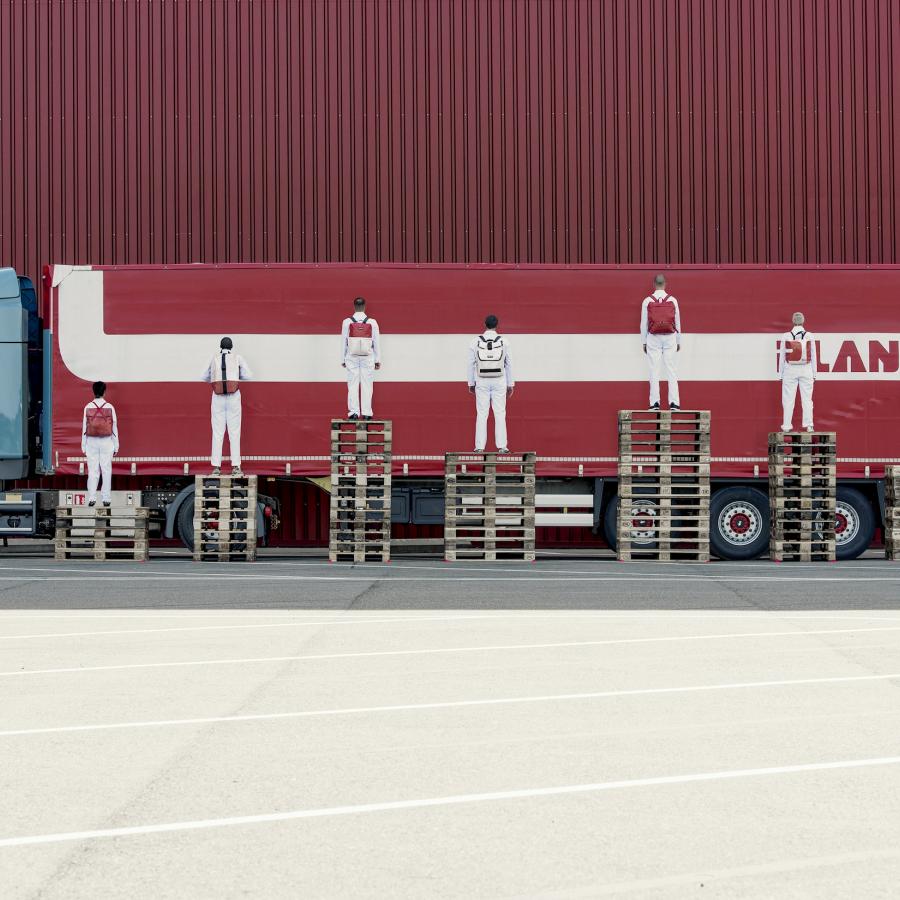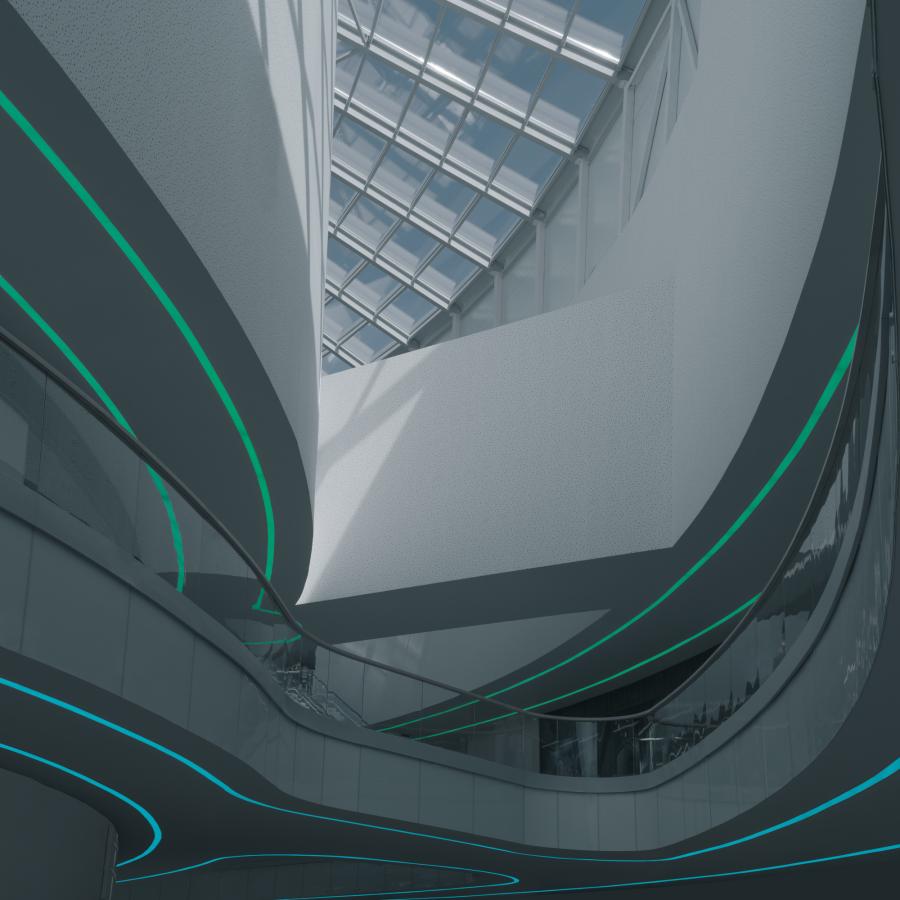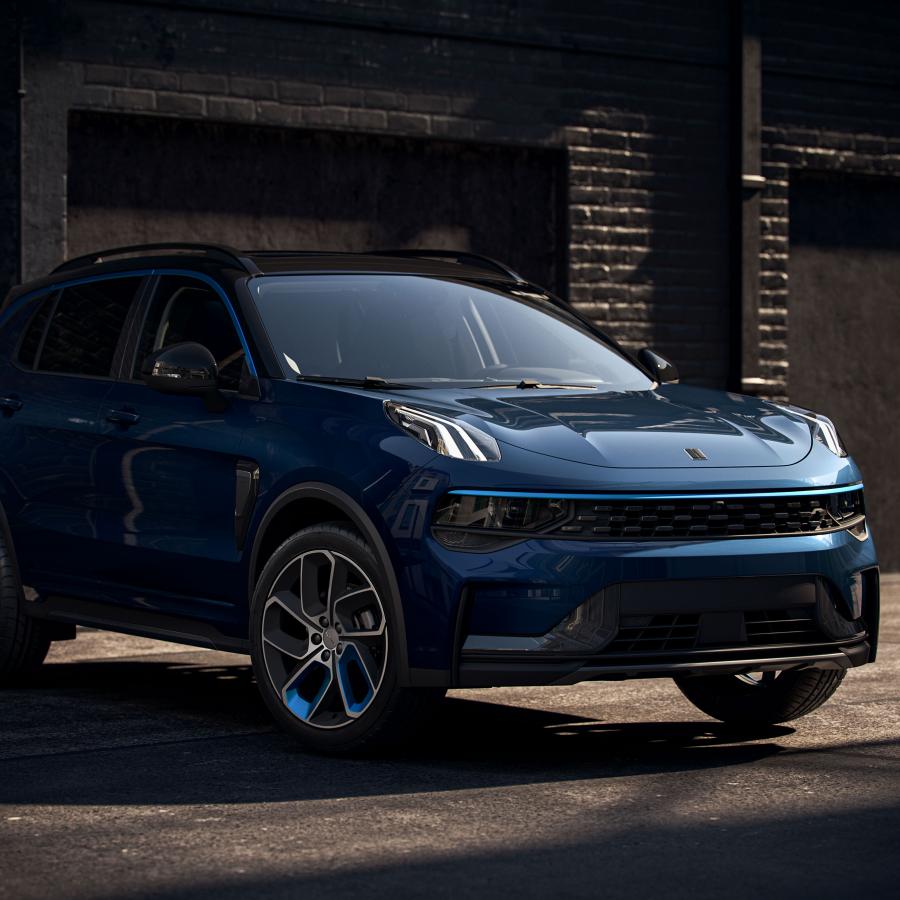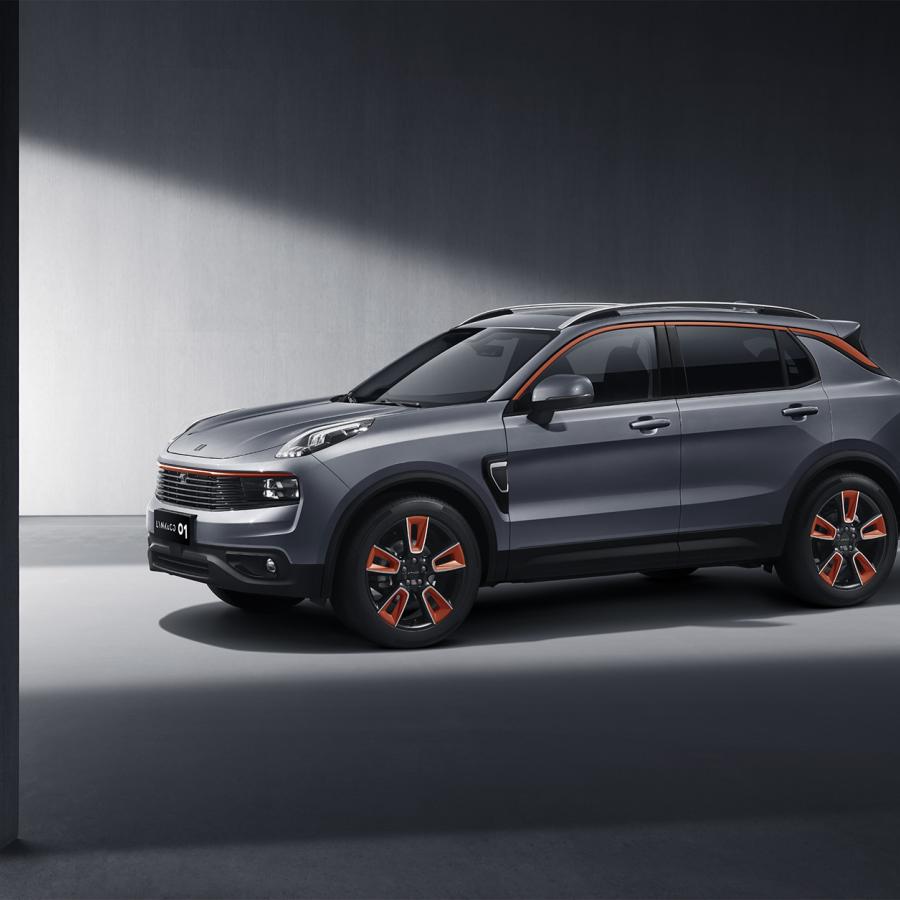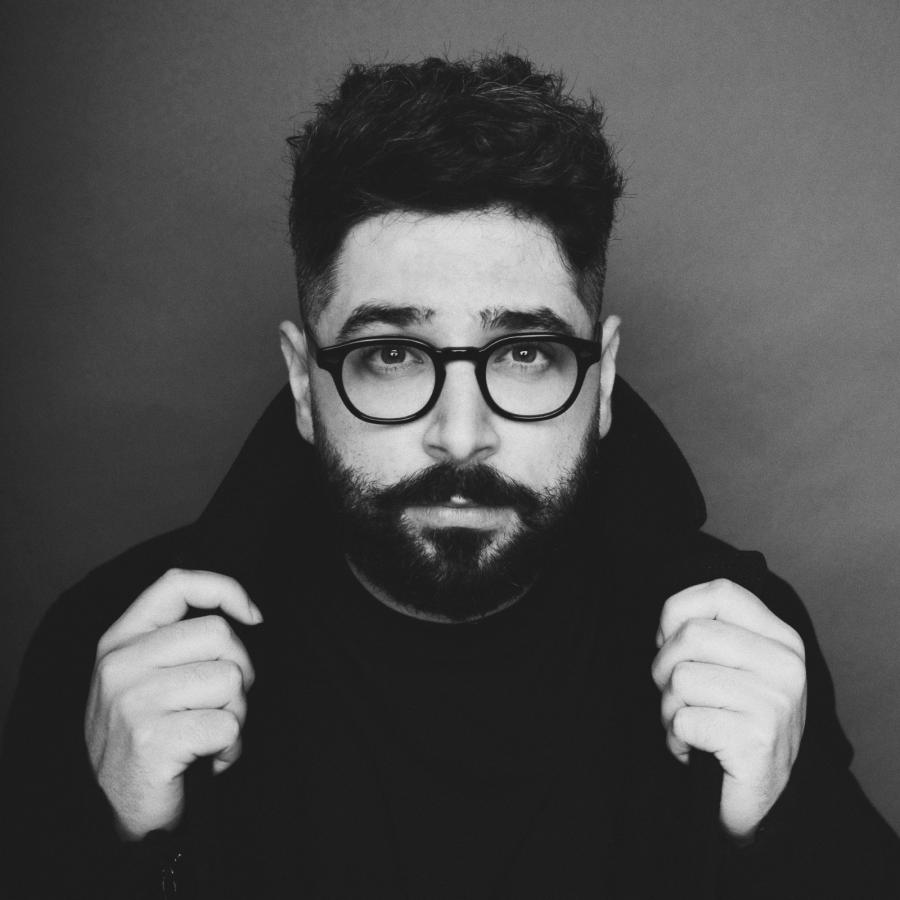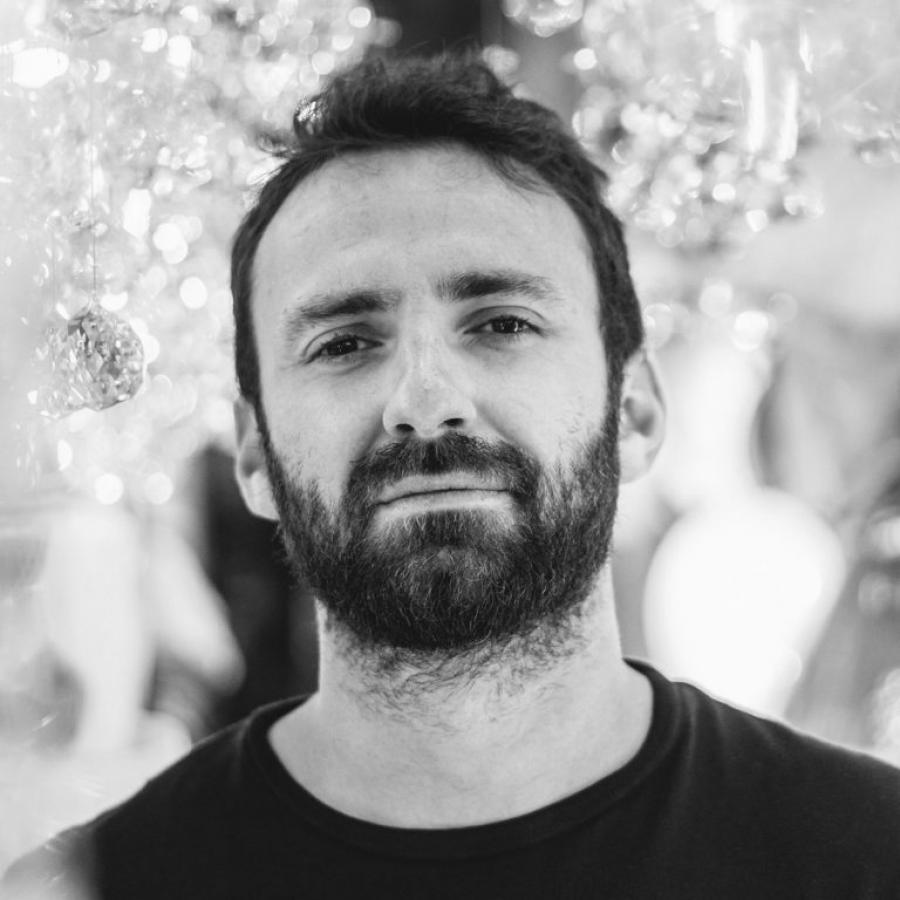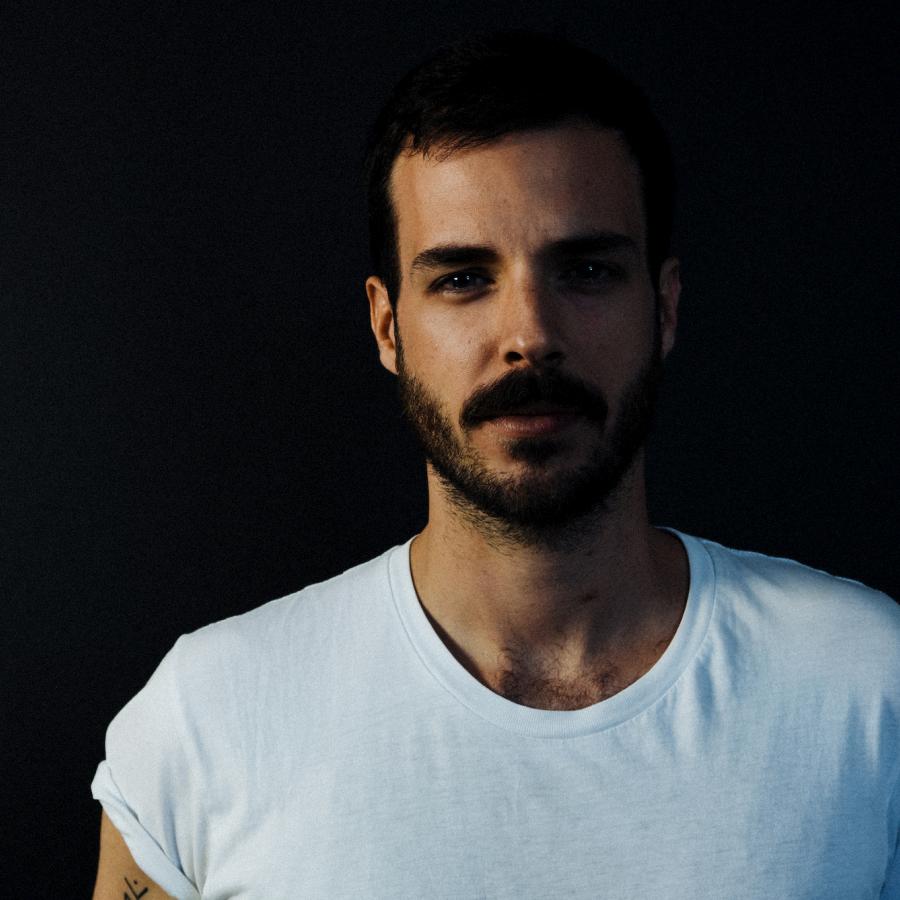by AoiroStudio
Guillaume Azadian is a great pal and currently working as an interactive design director based in Paris, France. He had the opportunity to work with renowned brands & clients such as Reuters, Harvard Business School, Marriott, Google, Formula 1, Ubisoft, Samsung, PlayStation. We had the pleasure to share a few questions, let's take a look at these answers. I hope you will enjoy his story and aspire to your design journey.
First of all, I would like to thank you for doing this interview, it's an honor for us to present more about you to our readers. Can you start by telling us a little bit about yourself?
First off, thank you very much for having me. I've known Abduzeedo for quite some time now, and it is truly a pleasure and my honor. I'm working as a design director/designer, freelancing with agencies or directly with brands, mainly from the US and Europe. Most of my work is digital; it ranges from product design with complex design systems to marketing/experiential websites; I also take care of branding projects. I have a real taste for motion design and typography. I think that design is an opportunity to establish an emotional connection with a user, which is one of the aspects that I love about my job.
How did your journey into design start?
It wasn't very straightforward. I grew up in Normandy, about an hour and a half from Paris, France. Since this is the countryside, I had plenty of time on my hands, and I spent a lot of it reading books, comics, and watching Japanese animes. I was fascinated by the power of words and images, and especially what makes a good story—I imagined becoming a journalist or a writer for a while.
It took me some time to find my way. Then, while studying marketing in England, I discovered Photoshop and spent full weeks trying to recreate a playing cards game from a famous RPG game called Final Fantasy 9. I decided that I needed to shift, and after getting my degree, I took a loan and spent two years at a design school in Paris. Even though I was initially more interested in illustration, this experience opened my eyes to many things. My passion for design only grew from thereon.
What inspires you?
I draw inspiration from quite a few different places. I try to find inspiration outside of the design world to develop fresh perspectives. It could be anything, but for me, the obvious ones are museums, movies, mangas/comics, architecture, objects, video games, books, etc. As a concrete example: a while ago in a tall building, the elevator would take quite a long time to get to the top floors (maybe one to two minutes), and a lot of people were complaining about it. Since there was no way of making it any faster at the time, someone came up with a pretty brilliant solution. They added a mirror inside the elevator, and all the complaints stopped.
There are several lessons to that story of course, but I think that this is something that could have inspired Google's T-rex offline-only platforming game or something similar. Most of the time, I don't get an idea that directly translates into any specific design, but I think it's a good thing to feed your brain with as many interests as possible and let them percolate in the background. I see it as an incubator of sorts: the more seeds you plant, the more will eventually grow and sprout and turn into something that will somehow fulfill a purpose. For example, sometimes, a typographic mistake on a poster in the subway can spark an idea that I'll quickly write down or draw in my notebook for later use. Lastly, it may sound a bit obvious, but talking about design and art with your peers is a great way to update your perspectives and get new ideas.
What pieces of work are you most proud of?
Upwork
This is the latest live piece I’ve worked on. In a nutshell, this project was all about applying an ambitious rebrand to a technically-heavy design system. I feel like the key to success in this kind of expansive rebrand exercise is to reconcile all the moving parts and dependencies so that the result really ends up being a more comfortable and pleasing experience for the end user. As an added bonus, the project received a Typewolf SOTD award and as a long-time fan, I felt super thrilled.
Squadeasy
This was a very challenging and super fun project to work on. The brand was far from mature, and there was a lot to do on the product side as well. As opposed to Upwork, the team was pretty small, and the gap to be filled was huge. As numbers later showed, this kind of quirky new brand we put together proved effective and brought the attention we were hoping for at the onset.
What is the one thing you learned at the beginning of your career, that you still go by today?
One piece of advice was given to me at design school that has helped me through hard times in my career. One of my teachers said, "There are going to be times when you will get work that doesn't fulfill your expectations, and maybe sometimes no work at all. When that happens, don't fight against the wind... make time for side projects that make you happy because eventually, that is what you will be hired for." Even now, with a lot more experience under my belt, I'm still drawn to that specific piece of advice. I still always try to focus on the aspects of design that are special to me, and I always try to make time for interconnected passions such as sketching.
What would you consider the best moment in your career till now? Did you have any 'leap of faith' on the way?
I've had a few very lovely moments so far in my career. I think that winning awards are great and something I'm quite proud of, but recently I've grown a real interest in mentoring passionate young designers. An ex-coworker told me that he learned a lot from me and that I was the reason why he decided to stay longer at the company where we met (which he had plans to leave initially). I must say that I was pretty touched. Of course, I did take a few risks like moving abroad, first to Montreal in Canada, then to New York. But to be fair, even though it was scary, you could consider it more of an opportunity than a risk.
How does your typical day look like?
My schedule varies from one project to another as I have clients in the US and in Europe. I'm not super strict about my morning routine and I tend to sleep more if I feel like I need to. What matters to me is that I start each day fresh and ready for new perspectives. My start is typically slow. I have coffee, listen to the news, do a 30-40 minutes design roundup and maybe critique a few sites on Awwwards as a jury member. I'm usually more focused in the morning so I try to avoid meetings in this timeframe. I like changing my working environment, I switch between home, a coworking space next to my place, or another coworking space where I meet other freelancer friends. It also depends on what phase of the work I'm in. Some phases require isolation, others are better suited to confronting elements with a peer or a colleague. I usually try to stop working around 6 or 7 pm and then disconnect from work until the following day.
What do you do to enjoy life NOT in the office?
To be honest, my routine hasn't changed so much since remote-working became a new norm. I still need to disconnect from what I do at work during the day. I usually do that by spending time outside of my apartment, meeting friends, or playing sports.
How does your job as a designer influence your life; do you feel that you see things differently?
Definitely... although it has been so long (about 12 years). I don't know anymore what reflexes are inherited from my work or my former self. The thing with design is that it's connected to many of my other passions. I think that design taught me to be more observant and patient. And of course, ever since I started the practice, I can't look at posters, movie FX, title and credits screens or logos, etc. in the same way. It's almost impossible now for me not to be critical or analytical (in a good way).
What are the top three books you can recommend as must-reads for burgeoning designers?
Tough question. Especially since there are so many good books out there so I'll go with some of my latest purchases. Also, I do think it's really about where you're at as a designer—being able to identify those aspects you passionately want to work on. 1/ White, by Kenya Hara. 2/ Interaction of Color, by Josef Albers 3/ Mythologies, by Roland Barthes. This one is pretty special and it's actually a very old one. It isn't really about design, it's more about sociology or philosophy and how an object or a concept becomes so popular to the point that it becomes a myth without us really noticing. This one is probably my favorite as it forces you to take some zoom out and eventually help you understand your role as a designer in society.
Tell us five lessons you believe are really important for every Designer.
- 1/ Trust yourself and your vision. No matter how advanced you are, and especially if you're not very advanced. It sounds like a cheap motivational message, but there is absolutely no way you will do the things you want to do if you don't trust that you can do it.
- 2/ Be humble. Trusting yourself and your vision is key, but the day you start thinking that you got it all right is the day you'll stop improving. Being open to critique. Realizing that nothing you'll do will ever be perfect is fundamental to excellence.
- 3/ Be nice. This may seem unrelated, but I believe that it's essential. We're passionate about our jobs but let's not ruin it with excessive egos or by putting work above those that we work with. Humans before work!
- 4/ Be curious.
- 5/ Treat work as a passion whenever you can. I know that this won't apply to every designer out there, but we learn so much faster when we take pleasure in what we do, so if you can make room for that (whether through a side project or your primary employer), I would highly advise you do it.
Do you believe that here in the USA designers are more valued
Compared to France (where I come from), I would say yes, even though this is slowly changing and many actors take part. Large French companies are now realizing that they need to invest more in design, they still have a long way to go I think. Even startups tend to neglect the quality of their design which is even more surprising. Fortunately, that doesn't happen as often. Agencies are obviously a more educated audience design-wise, so the quality and standards are there, but designers still don't get paid as much as they should, relative to the value that they bring to the table. The actual design studios are pretty good in France. I'm pretty impressed with the quality of the work that's out there but again, it's not an industry that pays as much as it does in the US, so some designers decide to try their luck abroad.
What’s next for you?
Good question! I think I'll focus on freelancing for a while. I'm a jury member at Awwwards, but I've done a few formal critique sessions at design school and I'd like to do more of the latter. I would also like to keep expanding my skill set and get more serious about drawing, especially focusing on anatomy and portraiture.
Thanks again for your time, please leave a final message for the ones who are starting out on this kind of business.
Thank you! To anyone who is starting a career in design I'll say this: if you stick around for long enough, not that far from now actually, part of the design world will be shaped by you so start thinking of the things you'd like to see more of in the design world!
Guillaume Azadian is an interactive design director. Check out more of his work on guillaumeazadian.com.
